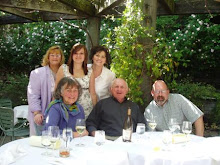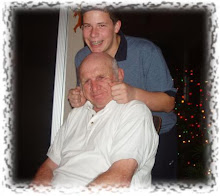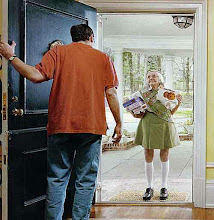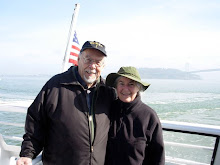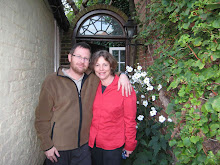https://www.salon.com/2018/06/11/why-are-poor-people-in-america-so-patriotic-one-man-went-on-an-odyssey-to-find-out/
What is a puzzle for you
and me is actually not a puzzle for them at all. It is, in fact, the opposite.
It is precisely because so many things have gone wrong for them that they get
so much mileage out of being an American, which still happens to be a very
prestigious national identity. One could argue that in a way it gives them a
sense of identity like nothing else. They’re hanging on to it precisely because
they have nothing else to hang on to.
They don’t have their history
wrong. I think they’re being too harsh on themselves. They also differentiate
between themselves and the government and say, “What happened to me is my
responsibility.” In the end, they hang onto this idea. They feel motivated to
continue and to do better the next morning. Many of them said that.
I would push back and ask, "Have you reconciled what
happened to you with your love of country? Didn’t you get screwed?" They
would respond, “No, what happened to me is my thing.” This is not false
consciousness. This is a true sense of dignity that they get from the social
contract as they perceive it.
I was talking to people
who were prostitutes, former drug addicts and current drug addicts. Many were
homeless. They would say several things in common. One was that they felt free
to come and go and do the things they wanted and also to do and think whatever
they wanted. In Montana, I met a young white person in the library who was
homeless. I asked him, “Why are you homeless?” He said to me, “I’m homeless
because it’s basically a sabbatical from life for me. I’m working on an app.” I
thought, that cannot possibly be true. He then said, “In other countries, they
would probably force me into a shelter. Whereas here, I can stay homeless and
nobody bothers me for it.” I thought to myself, that is amazing.
. Many of them felt very autonomous. Many
of these people would also say fantastical things to me like, “Look, I’ve
turned a corner a month ago" or "I found God six months ago. Now I’m
in good standing before God I don’t drink anymore. On Monday I have a job lined
up." I don’t know if that was true or not.
The God thing, I should say, was also very
prevalent. This sense that they’re walking with God and that America is God’s
country. God loves America more than he loves other countries. This sense,
still, of walking with God in God’s country, trying to do the right thing.
How did the poor and
working-class people you spoke with feel about the rich?
I asked that question many times. I would wait for the right
moment when, for example, a big Mercedes would drive by. In almost all cases,
what I heard was, "They earned it and they made it on their own. Just like
my failures and my faults, their successes are their successes." Now I
would challenge that and say, "Come on, you were probably born in a
certain context that was not helpful to you. They were probably born in
well-to-do families."
I have these quotes in my head. One fellow said to me, "It’s
got to be choices. It’s got be bad choices or good choices, but it’s got to be
choices. It comes down to choices." But this same man had just told me how
his father had beaten him up all his life. He was 14 years old and homeless; he
ran away. Those are not choices. It was very difficult to get them away
from that type of thinking. They thought that the rich essentially deserved it.
The rich were generous. They get a lot of things as a result of that. These
poor and working-class people actually told me that.
What were some of the
conversations and life stories that really moved you?
One person I spoke with was a white woman struggling with brain
cancer. She was young. She had three kids. We chatted at a bus station in
Colorado but she was from Alabama. She was talking to me about her life. It was
very important to her to have her kids read the Pledge of Allegiance, recite it
at home. She was struggling to teach them the right values before she dies.
There was an African-American I met in Alabama. She was studying
at a community college or the like to be a chef. She said to me, “Life out of
country, life out of me.” She was saying: If you take the country away from me,
you take the life away from myself; I have to have that. She was in her late
30s or early 40s.
I also met this couple who were living out of a very old Saab. I
met them at laundromat in Billings, Montana. He was probably 20 years older
than she was. He was probably in his 40s. She was in her early 20s. She had
served in the military. He hadn’t.
She was expecting. We had an amazing conversation. They were
very articulate and very thoughtful. It was him who said, “We have to be
patriotic. You have to have a shred of dignity. Yeah, the system is corrupt,
the police are corrupt, we’re being watched by everybody." Mind you, this
is Montana, so they were very libertarian.



